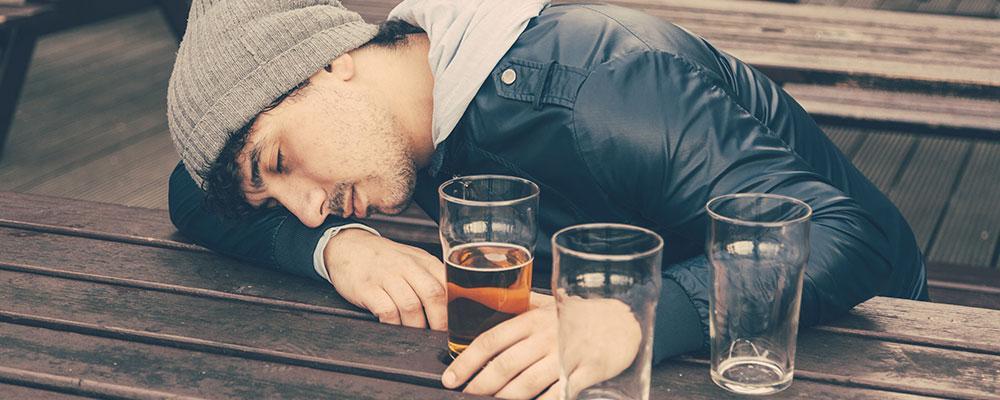Orangetown, NY Liquor License Violation Attorney

Lawyer Helping Alcohol-Related Businesses Address Violations or Appeals in Rockland County
When you operate a business that sells or serves alcoholic beverages, you will need to meet a variety of requirements to obtain and maintain a liquor license, and you will want to address any issues that could threaten your license quickly and effectively. Violations of the liquor laws in New York could result in serious penalties that affect your ability to continue operating your business. If you have been accused of these types of violations, you will want to work with an experienced attorney who can help you understand your legal options for defending your license.
At the Law Offices of Robert S. Lewis, P.C., we assist bars and restaurants, alcohol manufacturers and distributors, and craft breweries and distilleries with liquor licensing issues. With over 35 years of legal experience, Attorney Robert Lewis can provide you with legal representation to help your business maintain a valid liquor license.
New York Liquor License Violations
The New York State Liquor Authority identifies a number of different violations that could result in penalties for a business, including:
- Selling alcohol to minors – Alcoholic beverages cannot be sold, given, or delivered to a person under the age of 21. An establishment can avoid violations by always asking patrons for proof of age, maintaining written policies that employees should follow when selling alcohol, and providing training to ensure that employees understand these policies.
- Disorderly premises – An establishment may face consequences if fights, lewd conduct, or other disturbances take place on the premises, if illegal conduct such as prostitution or sales of controlled substances occurs, or if there is excessive noise. These violations can be avoided by maintaining adequate security, contacting the police when incidents occur, and reporting incidents to the Authority.
- Intoxicated customers – An establishment should not sell, give, or deliver alcohol to a patron who is visibly intoxicated. Proper training should be provided to employees to ensure that they can identify these types of situations and avoid violations.
- Offering unlimited drinks – A bar or restaurant cannot give away free drinks or offer multiple or unlimited drinks for a single price, except for “two for one” or half-price drink specials.
- Availing – This type of violation applies when a person has an ownership stake in an alcohol-related business without being disclosed to the Authority. A business should be sure to obtain approval from the Authority before making any ownership or corporate changes.
- Gambling – “Contests of chance” of either a professional or social nature are not permitted at a licensed establishment. However, certain activities, such as bingo or sales of lottery tickets, may be allowed if an establishment receives the appropriate state authorization.
- Illegal extension of premises – An establishment must operate within the licensed area that was specified in its liquor license application. Using an unlicensed area for the sale or consumption of alcoholic beverages could result in a violation. If any area is added to the premises, an establishment should file an alteration application and receive authorization from the Authority before using this area.
- Failure to conform – An establishment must follow the conditions specified in its liquor license, including the hours of operation and the types of activities permitted at the location, such as live music or dancing. A business must also follow all applicable state and local laws and regulations, such as fire codes or health codes.
Hearings and Appeals
An alleged violation may be investigated by the New York State Liquor Authority, law enforcement officials, or other agencies. If a business owner becomes aware of a violation, they can self-report it to the Authority, and this may result in reduced disciplinary actions.
If the Authority believes that a violation has occurred, it will begin disciplinary proceedings, and the establishment’s owner will be given the opportunity to plead Guilty, Not Guilty, No Contest, or Conditional No Contest. Following a Not Guilty plea, a disciplinary hearing will be held before an Administrative Law Judge. If the judge determines that a violation occurred, or if the owner pled Guilty, No Contest, or Conditional No Contest, the owner may face consequences such as the suspension or revocation of their liquor license, a civil fine, or a bond claim. Certain violations may also result in criminal charges.
If you have been accused of a violation, we can help you understand your options during an investigation and your rights when making different types of pleas. We can provide representation during a disciplinary hearing, ensuring that you take the right actions to defend your license and working to help you minimize the potential penalties you may face. If you receive an adverse decision in a hearing, we can assist you in appealing this decision to the New York State Liquor Authority board.
Contact a Hudson Valley Area, New York Liquor License Lawyer
Any threats to your liquor license should be addressed immediately, ensuring that you will be able to continue operating your business. To learn more about how the Law Offices of Robert S. Lewis, P.C. can help you address violations, contact our office at 845-358-7100 to arrange a free consultation. Se Habla Español.


